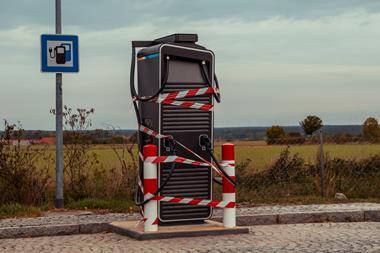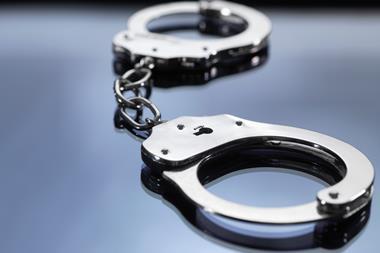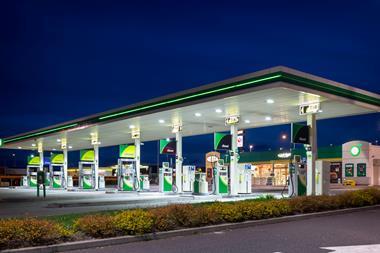Branding is everything nowadays - whether it’s the hippest fashion label or coolest make of bottled water - many consumers want to be associated with brands. And independent forecourts can be associated with them too thanks to alliances with the likes of Budgens, Londis and Spar, and in the food-to-go arena they can tie in with coffee companies and people like Subway.
Stewart Samuel, senior business analyst at IGD, says there can be significant synergies when forecourts join forces with other brands: "There are a number of benefits for joint ventures of this kind. Both parties may benefit from the stronger brand awareness and added credibility that such a venture brings, and of course the forecourt operator can draw on the expertise of the retailer.
"Such a venture may also be an opportunity to change the shopper profile. One recent example is the BP Connect/M&S joint venture, which has attracted a greater proportion of female shoppers.
"There can be similar benefits for symbol group membership. As well as the potential branding synergies, they may offer better access to product ranges and promotions; buying benefits; and higher standards of store operation and compliance. From a managerial perspective, it also minimises the number of supplier points of contact."
There are currently 520 Spar stores on forecourts and Spar retail director, Richard Bennett, says they range from the independent single-site retailer to major petrol companies’ owned and operated outlets. "Spar is at the cutting edge of forecourt development and this can be witnessed at our very latest Spar store at Battlefields near Shrewsbury. This site has many new features including an extensive food-to go-offer and a smoothie bar.
"Plus we are making really innovative use of space, lighting and equipment to create a really great shopping environment for the store’s customers."
Budgens has, of course, proved a big hit with forecourt retailers because of its extensive fresh food offer.
Mike Wilman has a Budgens-branded forecourt at Bramley in Surrey. He’s owned the site for nearly four years and has been with Budgens since 2005. He says: "Budgens has a strong brand presence in the convenience sector and the company is a great supporter of independent retailers. We felt this partnership could help us achieve a greater offering for our customers, and so it has. The Budgens supply chain gives us convenient deliveries six days a week, most importantly including fresh produce, which is a fundamental requirement of our customers and is really what sets Budgens apart from its competitors at the moment."
take it away
A quality food-to-go offer is particularly important on a forecourt as the IGD’s Samuel confirms: "Traders who offer a branded foodservice can also gain the credibility and familiarity of the food-to-go offer, and can again attract new customers and sales."
He also points to other advantages: "Depending on the detail of the financial arrangements, the landlord can also secure significant guaranteed rental income. However, the landlord must be happy with the space he is losing, and that the set-up and management costs are actually manageable. Both sides must be certain that the brands are appropriate for one another."
One food-to-go chain that is going great guns in the UK is Subway and the good news is that it’s keen to tie up with forecourts. There are currently 21 stores trading on forecourts and around 30 in development in the UK and Ireland. "We now have a big enough brand presence to put Subway on the pole sign and be sure that people will stop and buy," says Paul Heyes, Subway development agent.
There are two ways of introducing the brand to a forecourt. So far most sites are being run by independent franchisees, with the forecourt operator receiving a rent for the space used. This means the site operator hands over the day-to-day running of the franchise to someone else, while earning extra revenue and enjoying the benefits of extra trade and dual branding opportunities. However, forecourt retailers can also take on the franchise themselves.
Heyes says the current Spar sites with a Subway have found that they are selling more food all round because the site becomes known as a good place to go for food.
"We aim to add numbers to the forecourt’s business by attracting new customers," he says. "Spar tells us that we add value right across the board for them. They see numbers go up and real growth in the petrol and shop business as well. It’s a mutually beneficial relationship."
The smallest format Subway operates is around 250sq ft and includes a full menu and full service. "We don’t do a watered down version -it’s still the real Subway experience," says Heyes. "We’ve also got forecourt sites at 1,000 sq ft with seating but these are likely to be on major arterial routes where people want to stop for a break. A suburban site with limited parking is more likely to want a takeaway-only offer."
As to criteria, he says Subway is interested in the numbers of customers going through a site, but they also look at the trading area. "We’ve got sites operating very successfully on around 10,000 customers a week. But it’s not just about the number of customers; it’s about the area and the potential for the brand to attract new trade."
The typical investment for a forecourt site franchise is around £50,000, which includes the equipment, fit-out and franchise fee. There is then an ongoing royalty fee of 8% on sales. Heyes says average net sales for a site in Ireland are around £6,000 a week.
Finally to BP, where the $64m question is ’how can franchisees get their hands on the M&S Simply Food brand?’. BP has hinted that M&S might become part of its Connect franchise package however David Barrett, manager of European franchise development at BP, will only say that it was "an opportunity they are continuing to explore". He adds that they have to make sure it will work for all three parties involved before they move forward.
Meanwhile the BP Connect and Wild Bean café franchise package is going down well. There are already six sites up and running with four more due to open by the end of the month and 20 expected by the end of the year.
Barrett says one of the key criteria to becoming a BP franchisee is the operational and financial ability to run the venture.
"It’s all got to fit together right. It’s no good having the right site with the wrong operations. There are no hard and fast rules to minimum volumes/turnover but clearly sites have to have a high customer throughput. They’d need a minimum of six fuel points and five car parking bays. Ideal store size is 150sq m."
Barrett says there also has to be "absolute commitment to standards".
"Our franchise package will not be for everybody; people have applied and we have turned them down."
Initial cost to the retailer is £20,000 for a 20-year deal plus they have to pay 3% royalty on shop, Wild Bean and car wash sales plus an additional 3% into an advertising fund. However Barrett stresses this is not a profit centre for BP.
He concludes: "Consumers increasingly want the reassurance of a brand name, especially for food.
"BP has very strong brand recognition, it’s a trusted brand, which is why retailers are keen to come on board."
----
=== Case study: Londis ===
Five years ago John and May Whittingham changed their focus from a forecourt with a shop to a store with petrol with the help of Londis, and they say it’s been a great success.
John has been in the motor trade since 1964. In 1978 he and his wife opened a tiny garage and forecourt in the town of Lansair Caereinion near Welshpool in mid Wales. By 1988 they had traded that in for a forecourt with kiosk on the edge of town. John thought the kiosk was "enough store for the business to handle".
"We were then persuaded by an Esso rep to put in a proper store. He said ’if you don’t, you’ll fall by the wayside’. He had a job convincing me that I’d make any money selling beans," admits John.
Nonetheless, by 2002 the couple had joined Londis and invested around £150,000 in a 1,200sq ft store. John says that money’s already been paid back.
Of petrol retailing he says: "It’s getting more and more difficult with the oil companies. Unless you’re doing three or four million litres a year they don’t want to know. The store obviously makes more profit than the fuel side of the business, which I found difficult to believe at first. I now think that there is money to be made in forecourts as long as the store is good. The store in fact has also added volume to the forecourt."
John has no such qualms about his relationship with Londis. "We are pleased with the support we get from them. We go to the cluster meetings and we get a lot of information there. I believe all retailers should attend them."
----
=== Case study: Spar ===
Tim Burns has four independent petrol stations in the Worcester area. In 2005 he decided to convert one of his forecourt shops to Spar. He explains: "Spar had been courting me for a couple of years; I knew the people and loved its shop image. I really wanted to try a brand above the door and Spar just seemed right."
Joining Spar gave Tim an excuse to refit the shop. Fresh is big with Spar so the store refit included putting in a lot more refrigeration. Says Tim: "We are focusing much more on fresh and chilled foods and that’s the big difference with the new shop. We have fresh meat now so customers can put a complete meal together from things they buy in the store."
He particularly likes Spar’s promotions: "They weren’t something we could do ourselves professionally so now we’ve got an enormous amount of promotional offers going on all the time and they really drive sales."
The conversion was such a success that Tim has since done the same to his forecourt store in Hereford.
"It was a small shop - just 300sq ft - so we extended it to 700sq ft and rebranded it as a Spar. It looks so much more professional now. We’re really pleased with how it’s going; sales are up around 25%."
In fact he’s so pleased that he’s currently looking at the figures for his other stores with a view to joining Spar. "I’m delighted we went with Spar. You really need a brand above your door to compete with the likes of Tesco nowadays and our link with Spar is going very well."
----
=== contacts ===
BP
01908 853000
Budgens
0870 4006224
Londis
0800 781 4252
Spar
020 8426 3700
Subway
0800 0855058



























No comments yet